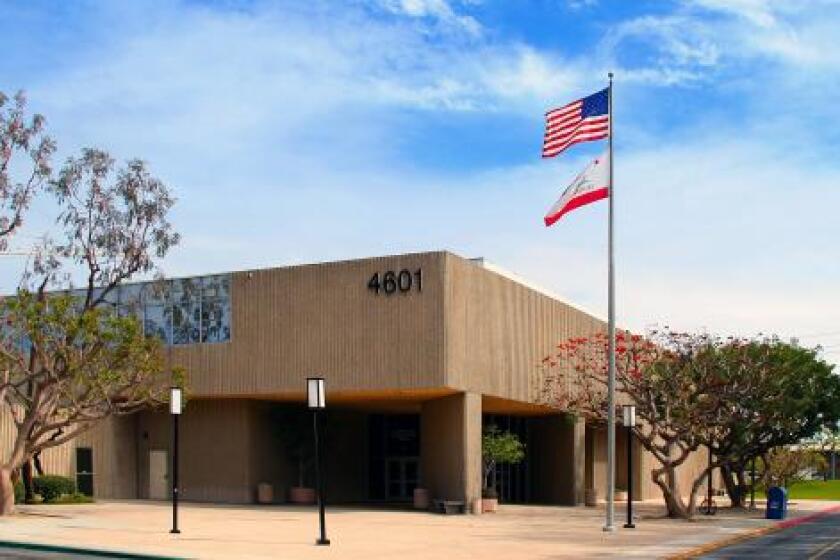Saying goodbye to a lifelong home
- Share via
CATHARINE COOPER
As the Bluebird salvage operation winds down, a kind of calm drifts
into the canyon. What personal belongings have been pulled from the
wreckage are bagged, boxed, tossed or stored, and the immediate needs
of shelter, clothing and transportation are temporarily satisfied.
The frenzied early days following the disaster have been replaced
with the long and arduous process of rebuilding homes and lives.
For some, questions of returning to the hillside remain
unanswered. Financial constraints, as well as time, factor into the
affected families’ ability to persevere. The commitment of Mayor
Elizabeth Pearson and City Manager Ken Frank to re-establish the
Flamingo Drive neighborhood is supported by the bulk of the
community, but its ultimate funding is a challenge to all of our
resources.
First round rejections by the Federal Emergency Management Agency
to tag funds, earmarked earlier as relief for the statewide rain
damage, are disappointing. While the outside press refers to all
Laguna residents as millionaires, those of us who live and work in
this community know the difference. To any of us, the loss of our
home would be tragic. Experience tells me that this is true, no
matter the size or value of your home, nor where you reside.
The last “run” on my parents’ home was early Saturday. What had
seemed impossible -- the rescue of the piano and the automobiles --
was resolved by the commitment of Charlie Williams. A bulldozer
carved a ramp through the steep and fissured earth directly to the
back deck.
The heavier furniture, which they had given up for lost -- the
couch, bedroom furniture, and the washer/dryer -- were successfully
loaded onto Charlie’s truck. The refrigerator had to be emptied
before we moved it, and this was not a job for the squeamish. I
grabbed large compactor bags, opened the door and squelched my gag
reflex. Alex and Remy, who work for Charlie, covered their faces and
held open the bags. Four weeks without electricity had rendered all
meat, fish and milk products a biological hazard.
Crew members turned their attention to the collapsed garage, where
a severed and uplifted slab has pinned my parents’ cars under the
rubble. Like a jigsaw puzzle in reverse, Charlie directed a careful
removal of structural pieces in order to free the vehicles.
I made one last pass through the house, searching the corners,
shuffling through the piles of discarded trash. In the floor of the
downstairs bedroom, I discovered the Wright family Christmas
stocking, woven long ago by someone’s nimble fingers. Upstairs, two
white handkerchiefs, lace and filigree with embroidered initials, and
a tiny heart-shaped dish tangled with broken glass.
Suddenly, it’s done. Everything of value is gone from the house.
All that remains is a broken shell that once was a home.
I step out on the front deck and gaze at the panorama of canyon
and Pacific vistas. The chatter of tiny wrens echoes along side the
house. Surprisingly, the jacaranda continues to bloom profusely, its
purple flowers dancing in the late morning breeze.
Memories, previously kept at bay by activity and a need to stay
focused, flood the moment. I travel back 41 years, remembering
briefly the difficulties of the first year here, living without my
father in the wake of my parents’ divorce. I see my grandparents,
long departed, in mental snapshots in front of the Christmas tree. A
roar of history -- birthday candles, Thanksgiving feasts, graduation
from high school and college, marriages, my children as toddlers
crawling over white carpets, mom’s heart attack -- shuffle through my
mind as tears finally work their way to the surface.
The ocean is as constant now as she was then, and as the scent of
the sea washes up the canyon, I sniffle back my tears and choke down
a goodbye to a place that is to be no more. My sadness feels selfish
-- it is not my home that was lost, but my parents’. It was a home I
left of my own accord, while they were forced, by an act of nature,
to flee.
From the back, I hear the cheers of success as one my mother’s
cars is freed from the garage and moved to an undamaged section of
Flamingo. “Small victories” has become a daily slogan for many of us,
and will continue as the process of demolition and rebuilding edges
forward.
I’d like to give special thanks to Bob Burnham for his diligent
oversight of the salvage/rebuild process and timely communications.
The generosity of this community continues to be overwhelming. Makes
me pretty darn proud to be a Lagunan.
* CATHARINE COOPER was actually a Laguna Beach cheerleader ...
once upon a time. She can be reached at 949 497 5081 or
All the latest on Orange County from Orange County.
Get our free TimesOC newsletter.
You may occasionally receive promotional content from the Daily Pilot.



